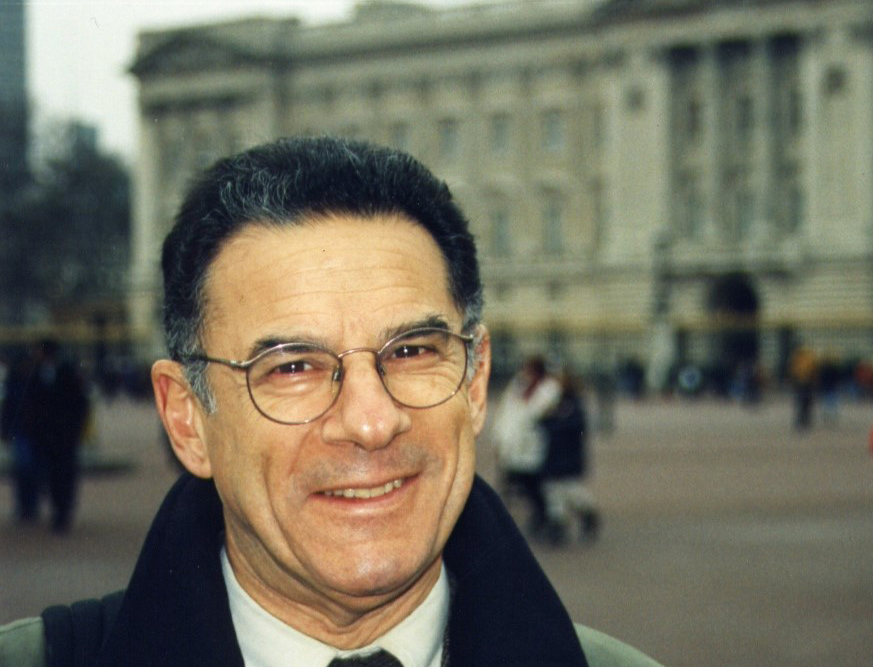The Observatory of Penal System and Human Rights commemorates its twentieth anniversary and pays tribute to Roberto Bergalli with international sessions

The Observatory of Penal System and Human Rights (OSPDH) of the University of Barcelona is organizing a series of international sessions from May 4 to 6 to commemorate its twentieth anniversary. These sessions will remember the figure of one of the founders of OSPDH, UB lecturer Roberto Bergalli, who passed away a year ago. During the sessions, which can be followed online here, academicians from several countries will make a sociological analysis of the justice administration, from a gender perspective too, they will reflect on the need for a critical criminology and will talk about the police task and prisons as a place of social fights, among other issues.

The Observatory of Penal System and Human Rights (OSPDH) of the University of Barcelona is organizing a series of international sessions from May 4 to 6 to commemorate its twentieth anniversary. These sessions will remember the figure of one of the founders of OSPDH, UB lecturer Roberto Bergalli, who passed away a year ago. During the sessions, which can be followed online here, academicians from several countries will make a sociological analysis of the justice administration, from a gender perspective too, they will reflect on the need for a critical criminology and will talk about the police task and prisons as a place of social fights, among other issues.
The rector Joan Guàrdia will open the sessions on Tuesday, May 4, at 4 p.m., in a ceremony with the dean of the Faculty of Law, Xavier Pons, and the director of OSPDH, Iñaki Rivera. The sessions will include six roundtables distributed over the three days, on the topics of Memory and transitional criminal justice, Europe and Latin America; Critical criminology: past and present; Towards a crime control sociology in Europe and Latin America; Criminal system and application requests: justice administration sociology; Security and sociology of police institution, and Prison, penitentiary and social movements. The program of the sessions is available here.
The Observatory of Penal System and Human Rights (OSPDH) carried out research, teaching and observation activities of the institutions of the penal system, aiming to work for the culture of human rights, to defend rights and freedom and to reinforce the principles and values of the democratic state. It has so far developed more than ten international research projects in the European Union, apart from others with Latin America and many national projects. It has always stressed the Observatoryʼs worry for critical criminology and sociology of crime control. In particular, it has been focused on studying the penal system, power examination and punishment culture, prison monitoring and fight against torture. It has also created the System for Documentation and Communication of Institutional Violence (SIRECOVI), pioneer in Europe, launched in Catalonia and which is now reproduced with adaptations in several countries in Latin America.
The OSPDH is part of the World Organization Against Torture, with head offices in Geneva, and is representative and consultant of several agencies such as the EU EUROsociAL program, and the European Councilʼs Committee for Prevention of Torture. The Observatory takes part in the masterʼs degree on Criminology, Criminal Justice Policy and Sociology of Criminal Law of the UB and is promoting a first online masterʼs degree on Penitentiary Law and Prison Matters. The director of OSPDH, Iñaki Rivera, was awarded the Human Rights National Prize 2020 given by the Pro Human Rights Association of Spain. Rivera notes that “future main challenges for the Observatory go through reinforcing control systems of punishing power regarding the authority temptations and pulses, and within an internal field of OSPDH, to ensure the future of young researchers”.
Roberto Bergalli (Buenos Aires, 1936) had a large academic experience in several American and European countries. Bergalli lived the repression after the coup dʼétat by the Military Junta de Videla, Massera and Agosti and was deprived from freedom for a year. In 1977, when he got released, he continued his research studies in Europe. After some years in the University of Cologne (Germany), in 1980, he became a lecturer in the Criminology Institute of the University of Barcelona, where he contributed to found OSPDG. Among his books are El pensamiento criminológico. Un análisis crítico, which he published together with Juan Bustos and Teresa Miralles. With Bustos he also edited the magazine Poder y Control. Revista hispano-llatinoamericana de disciplinas sobre el control social. He promoted pieces by critical thinkers on the penal system in Spain, Europe and Latin American, and became a role model in sociology of law.
